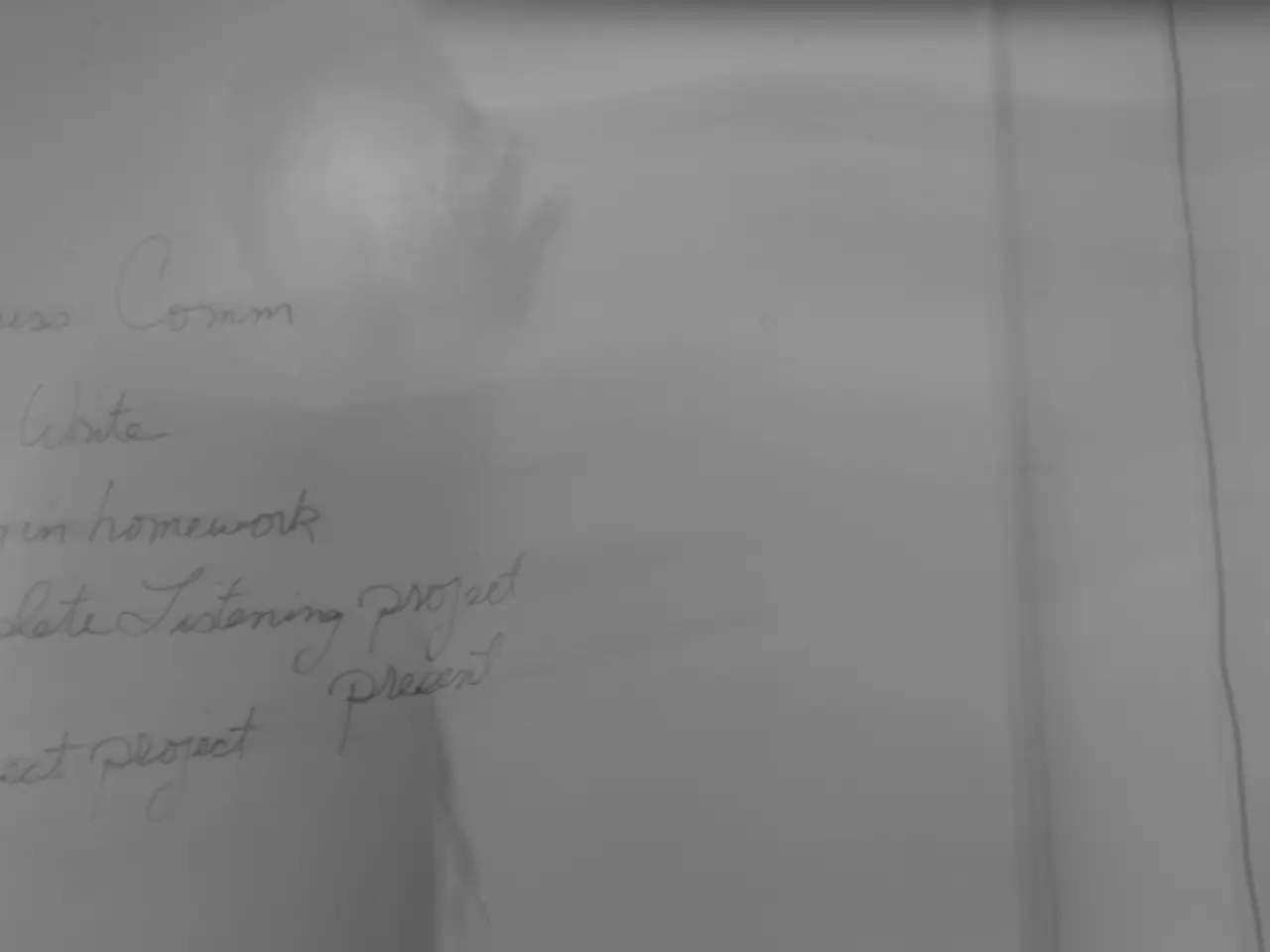Efforts by the Office of Management and Budget (OMB) to Streamline and Enhance the Effectiveness of the Do Not Pay List
The US government is taking steps to modernize and consolidate its financial management systems, with a particular focus on reducing improper payments across various government programs.
The administration's efforts are spearheaded by President Donald Trump's March executive order on Protecting America's Bank Account from Waste, Fraud and Abuse, which tucked a requirement for agencies to modernize and consolidate financial management systems.
The Do Not Pay (DNP) database is at the heart of these improvements. This database provides data to prevent the leading causes of improper payments, such as information on deceased individuals, ineligible entities, and invalid bank accounts. The DNP platform, which was created by the Obama administration in 2011, is free for agencies to use.
Current plans for the DNP database involve expanding analytics-driven fraud detection and prevention technologies. Agencies are increasingly using advanced data-driven approaches, including risk scoring, targeted case reviews, and anomaly detection, to identify and prevent incorrect payments before they occur. The UK Department for Work and Pensions (DWP) has demonstrated a model where these strategies have significantly curtailed improper benefit payments, a strategy that US agencies are looking to emulate or enhance with similar tools.
Government innovation models like WISeR (Wasteful and Inappropriate Service Reduction) are being developed to protect taxpayer funds by applying enhanced technologies to detect waste or fraud more efficiently. These efforts align with broader goals of improving straight-through processing, reducing manual intervention, and reallocating resources to focus on exceptions and complex cases, which together lower error rates in payments.
The private sector is also playing a crucial role in these improvements. Private companies provide advanced data analytic platforms, machine learning algorithms, and automated processing tools that can integrate with government systems to enhance detection and prevention capabilities. The private sector’s capacity for rapid innovation, trial-and-error development of data tools, and large-scale data integration supports the “fail fast” approach in analytics, helping to refine solutions before full implementation.
The Office of Management and Budget (OMB) is currently considering putting a hold on long-term modernization efforts that might take 5 to 15 years to implement, focusing instead on core accounting systems and ensuring information is available at the right time. OMB is also working on policies to eliminate bureaucratic obstacles without compromising privacy and security.
The White House is planning to address systemic issues in the DNP database to help agencies reduce improper payments. Agencies provided OMB and Treasury a compliance plan in June to establish where they are on the modernization journey. OMB already has discussed its plans to improve the DNP database at the CFO Council and will have more details in the coming months.
One of the key goals is to move away from the "pay and chase model" and toward the prevent and pre-certification approach. The administration is also encouraging agencies to migrate to a Treasury designated provider for transactional services and to reduce their number of core financial systems to one and procure it through the FM marketplace.
The EO called for non-CFO Act agencies to migrate to a Treasury designated provider for transactional services. The government currently uses paper checks to pay each other, which are costly and need to be replaced with more economical methods. In 2024, agencies sent more than 500,000 paper checks to each other instead of using tools like g-invoicing. OMB and Treasury have a goal of getting rid of paper checks.
Stephen Billy, a senior advisor for OMB, stated that the true intent of the DNP database has not been realized. The White House is committed to ensuring that the DNP database fulfills its potential in helping agencies reduce improper payments.
In summary, the improvement plans for the DNP database involve expanding analytics-driven fraud detection and prevention technologies and fostering partnerships with private sector innovators to enhance data quality, automate processing, and effectively target improper payments across government programs. These approaches aim to reduce waste, fraud, and error while increasing efficiency and taxpayer protection.
- The White House is planning to address systemic issues in the DNP database to help agencies reduce improper payments, with a key goal being the move away from the "pay and chase model" towards the prevent and pre-certification approach.
- The Office of Management and Budget (OMB) is currently considering putting a hold on long-term modernization efforts, focusing instead on core accounting systems and ensuring information is available at the right time, with the aim of eliminating bureaucratic obstacles without compromising privacy and security.
- The private sector is playing a crucial role in these improvements, as private companies provide advanced data analytic platforms, machine learning algorithms, and automated processing tools that can integrate with government systems to enhance detection and prevention capabilities, supporting the "fail fast" approach in analytics and helping to refine solutions before full implementation.




